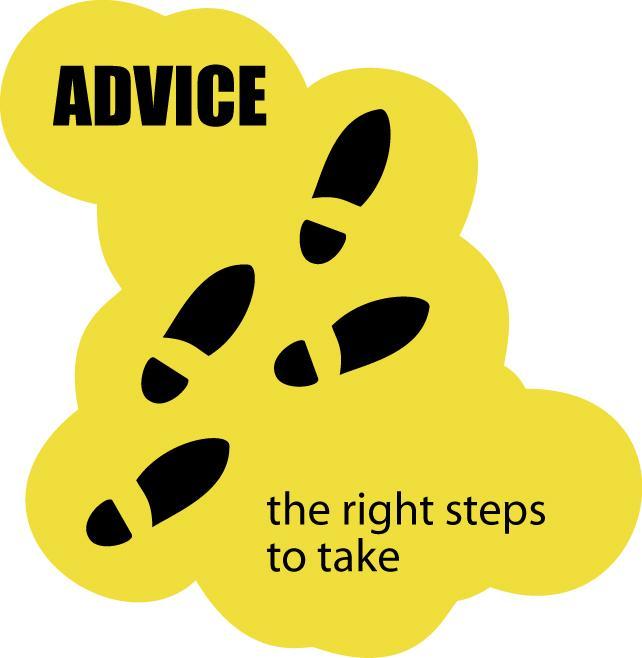A very Happy New Year to all of you! It’s Nicole and I want to welcome you back to York University. I hope that you had a successful Fall term and an enjoyable holiday. Already, we are at the beginning of the third week of the Winter term!
If you didn't finish off your Fall term as strongly as you were hoping, don’t let it get in the way of your overall success. You've probably heard the saying that a new year signals a new beginning. Well, I want you to think about a new academic term in that way too. The Winter is a second chance for you to get your grades to where you want them to be. Even though your grades may be cumulative (unless you started a new class this term), you can still turn things around by redefining your work ethic and finishing off the academic year strongly.
I know that it can be a bit difficult to get yourself back into an academic frame of mind so I thought I would help you out by sharing a few tips.
Remind yourself why you are here.

What are your goals? Remind yourself.
It’s easy to forget why you decided to pursue a post-secondary education, especially when readings and assignments start to get a bit overbearing. Stress and anxiety can make you lose sight of your goals. That’s why I think it’s important to remind yourself why you’re pursuing an academic degree. You can do this by:
- Placing a visible reminder of your goals/your reason for going to university on your fridge, near your desk or somewhere that you’ll see it everyday
- Writing out a list of your academic goals so that they are fresh in your memory
- Creating a mantra for yourself – i.e. think about why you’re at university and repeat that statement every time you feel flustered
- Create an academic plan for this term by writing out what sort of grades you want to receive in each of your classes, how you’re going to reach those end goals and what you are going to do in the Winter term to improve what you did in the Fall term
You can choose to complete each of the suggestions above or just choose one that you like the best. Perhaps you have another exercise that you do to help with motivation. If you do, don’t keep it a secret, share it with your peers by sending a Tweet to ACMAPS or visiting us on Facebook.
Don’t expect a slow start to classes.
You may have noticed that unlike the first week in September, the first week of Winter 2015 does not consist of introductions and going over course etiquette, unless you are starting a new course. Everything picks up where it left off. That means that you’ll have readings to complete and assignments coming up in late January that you’ll need to start thinking about. This can be a little overwhelming after being on holidays for two or more weeks. I know I found it hard to try and focus on schoolwork of any kind during the holidays and struggled to redirect my attention back towards my academic priorities once school started.
I have 3 suggestions to help you get back into an academic frame of mind: 1) Focus 2) Re-assessing your priorities 3) Thinking about your schedule
-
Focus
This is another one of those “easier-said-than-done” terms. However, focus goes hand-in-hand with motivation. We spoke about some ways you can motivate yourself for the Winter term above, all you need to do is to put those ideas into action. You’ll find that thinking about your reason for being at school will give you the push you need to focus on your schoolwork. Use that motivation to encourage you to succeed and fulfill your goals.
-
Re-assessing your priorities
A fantastic way to promote a greater focus on your academic responsibilities is to re-assess your priorities. What was important during the holidays (i.e. visiting friends, baking, getting back into old hobbies) may not be at the top of your list of ‘things that need to be done’ anymore. That doesn't mean that these things aren't important. I think that relaxation and participating in a social atmosphere are things that shouldn't be neglected; however, they sometimes have to take a back seat.

Rate your priorities.
A common used motto in my house is that everything should be done in moderation. When you move school up to one of the top priorities on your list you may find that it takes up a significant portion of your time. Remember that term—moderation. This applies to work, play and education. As a mature student you can’t afford for school to take up approximately 75% of your time each week. That is a lot of time to dedicate to your studies and it may be something that isn’t doable for you.
You will have to make some adjustments, and that may mean cutting back on additional activities or deciding not to take a class offered in the Winter. Only do what YOU can handle. You will be able to get a better idea of what you can handle once you start to think seriously about your daily schedule.
-
Thinking about your schedule
I've said it before and I will say it again, as a mature student you have several things going on in your life that need your attention. Plotting out your schedule is a helpful way for you to see where all of your time is going and to keep on top of your responsibilities. That doesn't mean that you need to plan out every hour of your day, you just need to be aware of the things that you have to do in some way or another. For instance, I take full advantage of the calendar on my cellphone by listing the times I’m in classes and how many hours I will be at work; I also mark the days I have assignments due or events that I am interested in attending or even engagements with friends. I do this because the calendar gives me an overview of what my day is going to look like. It also helps with my forgetfulness.

Create a schedule that works for you.
In order to know how much time you should dedicate to your school studies you need to think about your schedule. Remember during the beginning of the school year we talked about creating a chart to map out your daily schedule, which included your work, familial and personal responsibilities and the time you’ll be in your classes. If you would like to review that post again, click on: The First Month of School - Planning a Routine. It’s a good idea to make a chart again for the Winter term, especially if you added on another class. Keep in mind that schoolwork is not restricted to the time you spend in class. You have to factor in the time that will be spent doing class readings or assignments.
Furthermore, don’t forget to read your syllabus! Look over your class syllabus again and again. Pay close attention to the amount of readings you’re expected to do for each class and the due dates for assignments; I even suggest recording these due dates on a calendar that you will see every day. When you go over your readings, familiarize yourself with the amount of pages or chapters you are expected to cover each week. That way you can get an estimate of the amount of time you’ll be spending on schoolwork.
For January, you need to re-position school as part of your daily life and you're going to have to make time for it. Once you create a schedule mapping out your duties and responsibilities (including when you’ll be in your classes) you’ll notice little pockets of free time. Some of these pockets need to be sectioned off for you to do your readings and other school work, others I suggest leaving empty so that you have time to de-stress.
Speak to an advisor
The last thing I want to talk to you about is the benefit of visiting an advisor during the first few weeks of the Winter term.
During your first week back at school you may have walked past the Liberal Arts &

If you're unsure about your academics, seek advice.
Professional Studies Advising Centre located in Central Square and noticed the line of eager students in front of the door. This is not an uncommon sight during the beginning of a new academic term and I encourage more students to take part in this practice. Speaking with an academic advisor will help you clear up any questions you may have about your program requirements or course selection. An academic advisor can also help you distinguish whether you’re on the right track to achieving your academic goals.
You may have already spoken with an academic advisor, and if you did you’re ahead of the game. If you haven’t seen an advisor, there is still plenty of time left to sit down with one and go over your academic history and aspirations. Visit the Academic Advising website (http://acadresources.yorku.ca/advising.htm) to find out the advising centre that you should go to—they are organized by faculties. You can also drop by the ACMAPS office at 111 Central Square for academic support and guidance. If you feel unsure about what you’re doing with your program, don’t wait until it’s too late to get the help that you need.
The start of a new term can be exciting because it presents an opportunity for growth and change. I know all of you will be successful during the Winter term and I will be right here cheering you on and providing you with informational tidbits to help you through the rest of the year. Don’t forget that the Atkinson Centre for Mature and Part-time Students (ACMAPS) is here to support you. Visit our Facebook page or the office located at 111 Central Square with any questions you may have.


